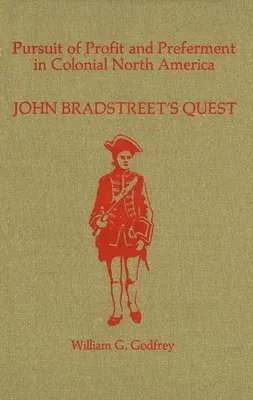William G Godfrey
(Author)Pursuit of Profit and Preferment in Colonial North America: John Bradstreet's QuestPaperback, 15 October 2013

Qty
1
Turbo
Ships in 2 - 3 days
In Stock
Free Delivery
Cash on Delivery
15 Days
Free Returns
Secure Checkout

Print Length
310 pages
Language
English
Publisher
Wilfrid Laurier University Press
Date Published
15 Oct 2013
ISBN-10
1554584752
ISBN-13
9781554584758
Description
Product Details
Author:
Book Format:
Paperback
Country of Origin:
US
Date Published:
15 October 2013
Dimensions:
22.86 x
15.24 x
1.65 cm
Genre:
Canadian
ISBN-10:
1554584752
ISBN-13:
9781554584758
Language:
English
Location:
Waterloo, ON
Pages:
310
Publisher:
Weight:
417.3 gm